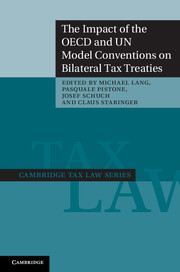Book contents
- Frontmatter
- Contents
- Contributors
- Preface
- Table of cases
- Table of statutes
- General report
- 1 Argentina
- 2 Australia
- 3 Austria
- 4 Belgium
- 5 Brazil
- 6 Canada
- 7 Chile
- 8 China
- 9 Colombia
- 10 Croatia
- 11 The Czech Republic
- 12 Estonia
- 13 Finland
- 14 France
- 15 Germany
- 16 Hong Kong
- 17 Hungary
- 18 India
- 19 Italy
- 20 Lebanon
- 21 Liechtenstein
- 22 The Netherlands
- 23 New Zealand
- 24 Norway
- 25 Peru
- 26 Poland
- 27 Portugal
- 28 Romania
- 29 The Russian Federation
- 30 Serbia
- 31 Slovakia
- 32 Slovenia
- 33 Spain
- 34 Sweden
- 35 Uganda
- 36 The UK
- 37 The USA
- Index
- References
21 - Liechtenstein
Published online by Cambridge University Press: 05 November 2014
- Frontmatter
- Contents
- Contributors
- Preface
- Table of cases
- Table of statutes
- General report
- 1 Argentina
- 2 Australia
- 3 Austria
- 4 Belgium
- 5 Brazil
- 6 Canada
- 7 Chile
- 8 China
- 9 Colombia
- 10 Croatia
- 11 The Czech Republic
- 12 Estonia
- 13 Finland
- 14 France
- 15 Germany
- 16 Hong Kong
- 17 Hungary
- 18 India
- 19 Italy
- 20 Lebanon
- 21 Liechtenstein
- 22 The Netherlands
- 23 New Zealand
- 24 Norway
- 25 Peru
- 26 Poland
- 27 Portugal
- 28 Romania
- 29 The Russian Federation
- 30 Serbia
- 31 Slovakia
- 32 Slovenia
- 33 Spain
- 34 Sweden
- 35 Uganda
- 36 The UK
- 37 The USA
- Index
- References
Summary
The relevance of the OECD and the UN Model Conventions and their Commentaries for the interpretation of Liechtenstein tax treaties
The Principality of Liechtenstein, a non-OECD Member country, has only recently started to develop a network of comprehensive double tax treaties. Negotiations with several countries, including Germany and the UK, to conclude tax treaties are at an advanced stage. Liechtenstein's newly concluded treaty with both OECD and non-OECD Member countries closely follow the different provisions of the OECD Model Tax Convention on Income and on Capital (OECD Model), thereby making the relevance of the OECD Model for Liechtenstein treaties obvious. However, so far there has been little experience with regard to the relevance of the OECD Model and the OECD Commentaries to treaty interpretation.
The relevance of the OECD Commentaries for treaty interpretation is limited. There has not much been experience with treaty interpretation to date, as the only treaty that has been in force long enough to have been subject to interpretation by tax courts is that with Austria. Taking into consideration the jurisprudence on this treaty, most of the interpretative difficulties concern the difference between business profits (Article 7) and independent personal services (Article 14) derived by a permanent establishment (PE) and fixed base, respectively, situated in Liechtenstein by a person resident in Austria. The reason for this is the fact that only the latter is exempt under the treaty provisions, whereas business profits would be subject to the credit method. It seems likely, however, that any changes in the OECD Commentaries made after the conclusion of a relevant treaty will not be taken into account when interpreting this treaty. In a mutual agreement procedure (MAP) with Austria in 2001, Liechtenstein applied a static approach when interpreting Article 3(2) of the treaty, thus only referring to the domestic laws as at the date of the conclusion of the treaty. This static approach will probably also be followed with regard to the OECD Commentary when interpreting a treaty provision. Other guidance for interpreting treaties in the absence of experience on the matter will probably be Switzerland's administrative practice, as Liechtenstein tends to follow the Swiss practice in those areas of tax law where it lacks its own provisions (for example, reorganizations prior to the enactment of the tax reform) and/or administrative guidelines because of the close political, legal and economic links between the two countries.
- Type
- Chapter
- Information
- Publisher: Cambridge University PressPrint publication year: 2012
References
- 1
- Cited by



